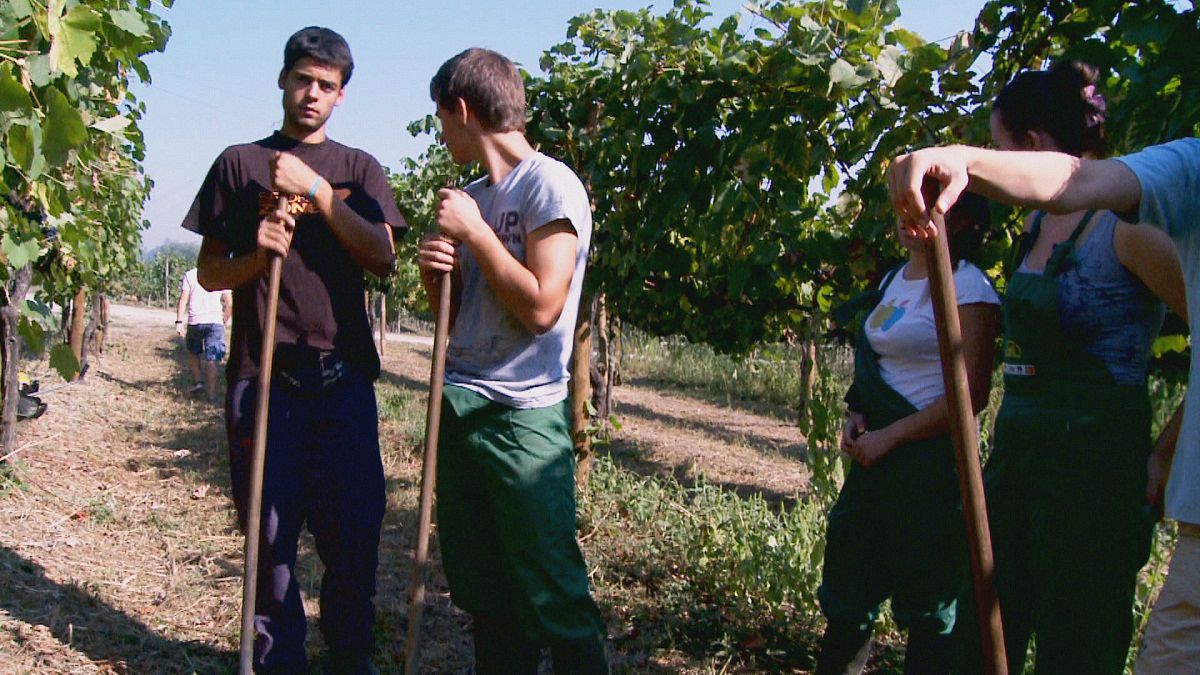Working on the land is considered by many to be a low status job. Farm workers generally earn low wages for hard labour and tend to have limited educational prospects. This edition of Learning World looks at what can be done to improve their access to education?
Portugal: success in agricultural schools
In the north of Portugal the Conde São Bento Professional School of Agriculture has around 50 percent more students than it did a few years ago. And this is not unique – it’s the same picture across the country: more people are studying agriculture.
Carlos Frutuosa, director of the college, and president of the Portuguese Association of Professional Agricultural Schools, said: “In the last two years, the government has changed its attitude. I think that they understood that not investing in agriculture was a serious mistake. Therefore, they now talk a lot about agriculture, about financial support for agriculture, which is a career opportunity for young people and that is being reflected in agricultural colleges.
Employment amongst agricultural school graduates is between 60 and 95 percent. This attracts students like Fabíola Costa, who is doing a gardening course. Other students come from agricultural backgrounds and have serious ambitions, like João Serrão who hopes to own a vineyard one day.
One of the most popular classes teaches how to drive a tractor. These students all want to train for a job that will exist when they’ve finished studying. Otherwise, like so many others, they could be faced with the prospect of having to leave Portugal for work.
USA: kids in the fields
Half a million children in the US work in the fields instead of going to school. Most of them are new arrivals in the country and work alongside their parents in order to survive. In agricultural North Carolina various organisations are working to get them back into school and to improve their prospects for the future.
Melissa Bailey, the executive director of NC Field, said: “We think the answer is more education of parents. We think the answer is more respect and dignity not only in the United States but around the world for the people who are responsible for the food we eat.”
But however motivated people are, adjusting to life in the US isn’t always easy. And as always, having parental support is extremely important.
Angelina Mendoza, a mother at the project, said: “Children who work in the fields need to stop thinking about work, or helping anxious parents make ends meet. It’s important to go to school. Studying must come first. I always say: “Guys, you must study, this is the time to study. Grab the opportunity, take advantage of it. Don’t waste it.”
Nicaragua: breaking the cycle
In Nicaragua, getting an education is sometimes easier said than done. But teachers like Selenia Hernandez are working hard to rectify the situation. She works with the SAT programme, which involves living within the community for at least five years, and working with both children and their parents to offer them all secondary level education.
Selenia Hernández, a teacher with the SAT programme, said: “We don’t need chairs, we don’t need to be enclosed within four walls in order to learn, because walls and chairs are not the ones who are going to be educated. The ones who are going to learn are the people and it does not matter where we are.”
Helena Edwards, Director of Programmes Fabretto, said: “In traditional schools they talk about teaching practices, but those are occasional experiments. On the contrary, teaching practice within this new learning model is about adapting to the realities and needs of the village.”
The approach is important here because it integrates relevant theory and practice based on each community’s land resources and economic potential in order to drive rural community development.
To combat migration to larger cities or other countries, SAT’s curriculum especially focuses on community services and development, entrepreneurship, as well as sustainable agricultural practices, providing the relevant skills as a way to help improving the quality of life in isolated rural communities.
In the last six years, 1,560 students graduated from the programme. Perhaps unsurprisingly, the SAT programme was a WISE Award finalist in 2013.
